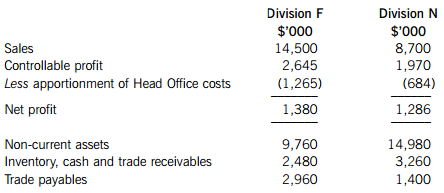August Wilson had collected _____ New York Drama Critics’ Circle Awards since Ma Rainey’s Black Bottom.
A.eight
B.seven
C.six
D.nine
 搜题
搜题
第1题
The title, "The Secret of America" refers to ______.
A.the fifty-five men who framed the Constitution
B.the wisdom that speaks to us in our Constitution that made American what it is
C.the year 1787
D.Madison, Mason, Sherman, Wilson, Morris, and Hamilton-men who had considerable influence in the drafting of the Constitution
第2题
(i) Hangle Garment Co had given up a credit of RMB 500,000 yuan owed by its affiliate enterprise in August 2013;
(ii) Some shareholders of Hangle Garment Co failed to make full capital contributions as prescribed in the articles of association of the company;
(iii) There was a contract between Hangle Garment Co and Bright Department Store, which was concluded before the bankruptcy application was accepted and had been partly performed.
Required:
In accordance with the Enterprise Bankruptcy Law of China:
(a) State whether the action of giving up credit could be revoked during the process of liquidation. (2 marks)
(b) State how the lack of full capital contributions by some of the shareholders of the company should be dealt with. (2 marks)
(c) State what right the bankruptcy administrator has regarding the partly-performed contract between Hangle Garment Co and Bright Department Store. (2 marks)
第3题
A、Edward Albee
B、David Mamet
C、Sam Shepard
D、August Wilson
第4题
Wilson v Dagnall [1972] 1 QB 509 Court of Appeal (Lord Denning MR, Megaw and Stephenson LJJ) Statute – effective date Facts The plaintiff’s husband was killed in a motor accident in 1969. On 19 March 1970 she commenced proceedings claiming, inter alia, damages under the Fatal Accident Acts. The hearing was on 27 July 1971: the defendant admitted liability and formal judgment was entered on 30 July. On 1 July 1971 the Law Reform (Miscellaneous Provisions) Act 1971 received the Royal Assent and the Act stipulated that it was to come into force on 1 August 1971. The Act provided (in s4) that, in assessing damages under the Fatal Accidents Acts, no longer was account to be taken of a widow’s prospects of remarriage. As the 21- year- old plaintiff enjoyed such prospects, the judge assessed her damages as though the 1971 Act were already in force. The defendant’s appeal was heard in December 1971. Held (Lord Denning MR dissenting) The judge had been wrong to apply the 1971 Act and the plaintiff’s damages would therefore be reduced to take account of her prospects of remarriage. Megaw LJ: ‘It is natural to feel sympathy for this young widow, as against an anonymous insurance company. But it cannot be proper for a court of law to decide a case in favor of a plaintiff on the basis of sympathy, if the law of the land, as laid down in an Act of Parliament, provides otherwise. Whenever the law is changed by an Act of Parliament, there are likely to be cases which can be regarded as hard cases. That would not have been avoided if, for example, Parliament had provided- as it deliberately did not provide- that the change in the law was to take effect on the date when the Act was passed, 1st July 1971. For in that event the cases decided by the courts in the days or weeks preceding 1st July (instead of, as now, 1st August) could equally have been regarded as hard cases: hard, because they fell so close to the dividing line but on the wrong side of it for the plaintiff concerned. Yet a dividing line there must be. The only question is: what is the dividing line which Parliament has chosen to lay down? Parliament has unambiguously said that the Act is to come into operation on 1st August 1971. To my mind there is no ambiguity about that nor any doubt as to its effect. It means that Parliament has ordained that up to that date, 1st August 1971, the law is to remain as before. I do not know why Parliament so provided. But that it did so provide is beyond dispute. I should have thought it was also beyond dispute, as an essential part of the unwritten constitutional law of England, by which courts of law are ineluctably bound, that those courts must loyally give effect to what Parliament has provided, and not seek to give effect to what they may think that Parliament ought to have provided. If Parliament has made a mistake, it has full sovereign power to correct the mistake. It follows that in my judgment the learned judge could not lawfully treat s4 of the Act as though it was already in force on 27th July. The judge’s decision was wrong and contrary to law. It ordered the defendant to pay money which, in law, the defendant could not lawfully be ordered to pay to the plaintiff. I do not regard it as relevant that the delivery of the judgment or the drawing up of the order could, as a matter of fact, have been postponed by the judge until 31st July had come and gone and the Act had come into operation.’ Questions 1. How many parts can this case be divided into? What are they? 2. Which two judges agreed with the ruling? Who dissented? 3. Why did the defendant appeal? 4. Why did the judges of the Court of Appeal reverse the first ruling?
第6题
A.off-Broadway
B.Broadway
C.off-off-Broadway
D.New York
第7题
第8题
Due to the failure to settle the debts due, Jianshe Garment Trading Co Ltd (Jianshe Co) was declared bankrupt by its creditors. In October 2010 the court rendered an order to accept the application of bankruptcy and designated a bankruptcy administrator. During the process of bankruptcy liquidation the bankruptcy administrator found that Jianshe Co had given up a credit of RMB 200,000 yuan owed by its affiliate enterprise in August 2009.
The bankruptcy administrator also found that some shareholders of Jianshe Co failed to made full capital contributions as prescribed in the agreement of incorporation.
Required:
Answer the following questions in accordance with the Enterprise Bankruptcy Law of China, and give your reasons for your answer:
(a) (i) State whether the action of giving up credit can be revoked during the process of liquidation; (4 marks)
(ii) State whether the court should grant an order to revoke the act of giving up credit. (3 marks)
(b) State how to deal with the matter of the lack of full capital contributions by some of the shareholders of Jianshe Co. (3 marks)
第9题
A. Edward Albee
B. Arthur Kopit
C. August Wilson
D. David Mamet
E. Sam Shepard
第10题
Cardale Industrial Metal Co (CIM Co) is a large supplier of industrial metals. The company is split into two divisions: Division F and Division N. Each division operates separately as an investment centre, with each one having full control over its non-current assets. In addition, both divisions are responsible for their own current assets, controlling their own levels of inventory and cash and having full responsibility for the credit terms granted to customers and the collection of receivables balances. Similarly, each division has full responsibility for its current liabilities and deals directly with its own suppliers.
Each divisional manager is paid a salary of $120,000 per annum plus an annual performance-related bonus, based on the return on investment (ROI) achieved by their division for the year. Each divisional manager is expected to achieve a minimum ROI for their division of 10% per annum. If a manager only meets the 10% target, they are not awarded a bonus. However, for each whole percentage point above 10% which the division achieves for the year, a bonus equivalent to 2% of annual salary is paid, subject to a maximum bonus equivalent to 30% of annual salary.
The following figures relate to the year ended 31 August 2015:

During the year ending 31 August 2015, Division N invested $6·8m in new equipment including a technologically advanced cutting machine, which is expected to increase productivity by 8% per annum. Division F has made no investment during the year, although its computer system is badly in need of updating. Division F’s manager has said that he has already had to delay payments to suppliers (i.e. accounts payables) because of limited cash and the computer system ‘will just have to wait’, although the cash balance at Division F is still better than that of Division N.
Required:
(a) For each division, for the year ended 31 August 2015, calculate the appropriate closing return on investment (ROI) on which the payment of management bonuses will be based. Briefly justify the figures used in your calculations. Note: There are 3 marks available for calculations and 2 marks available for discussion. (5 marks)
(b) Based on your calculations in part (a), calculate each manager’s bonus for the year ended 31 August 2015. (3 marks)
(c) Discuss whether ROI is providing a fair basis for calculating the managers’ bonuses and the problems arising from its use at CIM Co for the year ended 31 August 2015. (7 marks)































